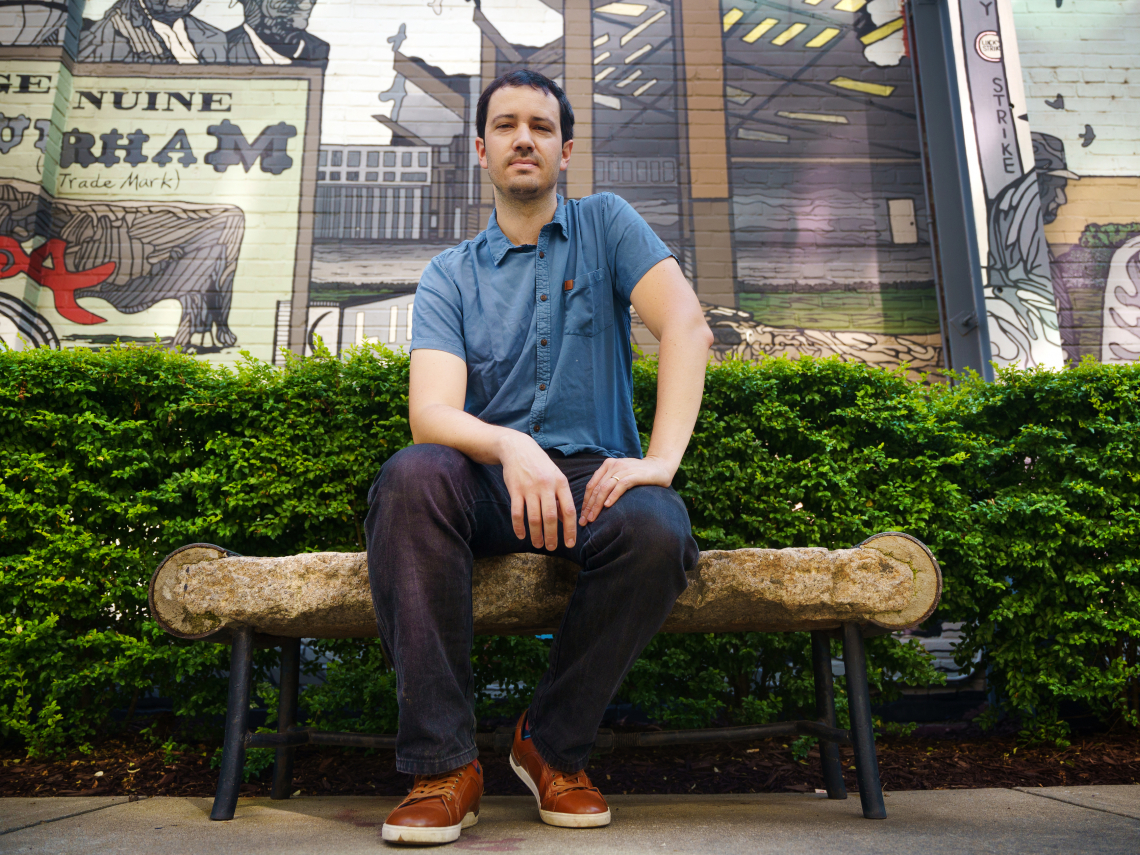Federico Huneeus Aims to Strike a Balance Between Economic Efficiency and Equity
“When I was younger, I had this idea that things such as inequality and productivity, common themes in Latin American development and policy debates, were connected with one another,” says Federico Huneeus. “Back then, I didn't understand where that curiosity would take me.”
That curiosity has taken him from Chile to Princeton, where he earned his Ph.D., to Yale for a postdoc, to working at the Central Bank of Chile, and now to Duke. As an assistant professor, Huneeus hopes to continue to connect the dots on these issues and their impact on policy.
A trade economist, Huneeus navigates the crossroads between macroeconomics and labor interactions. His work offers insights that promise to reshape the understanding of domestic and global trade.
Huneeus categorizes his research into two themes. The first focuses on the behavior of firms and how they impact productivity and inequality. He wants to know how productivity and inequality evolve over time, and how different dimensions of firms’ decision-making process affect both outcomes.
One example is the formation of value chains, or how businesses trade with one another to create and deliver products and services that people buy. Huneeus studies partnerships between the companies providing materials or services needed to put together a product (suppliers) and the companies that sell the finished product (buyers). “In the globalization waves of the past decades, trade between firms started to dominate global trade, relative to trade between firms and households. This has happened due to the expansion of global value chains, that crosses many borders before they reach households. Understanding this is crucial for today’s economic success.”
Huneeus’s research interests stem from a deeply personal place.
“I come from a developing economy,” he says. “In the ‘90s and early 2000s, there was a lot of debate, not only in Chile but in many emerging economies, in terms of what policies could be put in place to turn countries into high-income and low-inequality economies.”
Typically, topics that appear in this debate are inequality, low levels of productivity and integration with the rest of the world. By digging into the interactions between these factors, Huneeus wants to understand how integrating Chile with the rest of the world can help improve productivity as well as reduce inequality.
The second theme Huneeus is working on is understanding the micro-origins of the economy, and how individual elements or factors influence and shape the broader economy. In what he claims to be the most ambitious of his projects so far, he is combining big data of the majority of the transactions that happen every day in the economy and understand how they shape national accounts, through the behavior of millions of individuals and firms through interactions between firms and workers, firms and banks, firms and consumers, and firms and governments. These transactions serve as the basic components upon which the national economic picture is constructed, and their data can be analyzed and used to design and evaluate policy at a scale that has not been seen so far.
For example, those insights can help understand and shape the balance between efficiency and equity.
“As economists, we know that if we reduce things that are not working very well in the economy, that's going to be good for efficiency overall,” he says. “It may improve efficiency, but at the cost of harming others. This is a common theme in policymaking, and we are building an infrastructure that can contribute an input into that decision-making process.”
Before coming to Duke, Huneeus worked at the Central Bank of Chile, using data analysis, theoretical analysis and quantitative analysis to inform policymakers on the decision-making process. Now his presence solidifies the Duke Econ’s commitment to collaboration and fostering an environment of intellectual excellence.
Huneeus will add classroom instruction to his repertoire, which he has enjoyed in the past, teaching international trade courses at the graduate level. “It's always exciting to interact with students,” he says. “And with teaching there's the challenge of studying again, seeing whether you can explain concepts to someone else. I’m excited about that.”
Teaching isn’t the only exciting thing Duke and Durham have to offer. “It’s exciting to be in a place where it feels like things are happening,” Huneeus says. “With all the growth in tech in the area, there are a lot of people looking for new opportunities and open to new people, new ideas. It's encouraging to be in such a place.”

